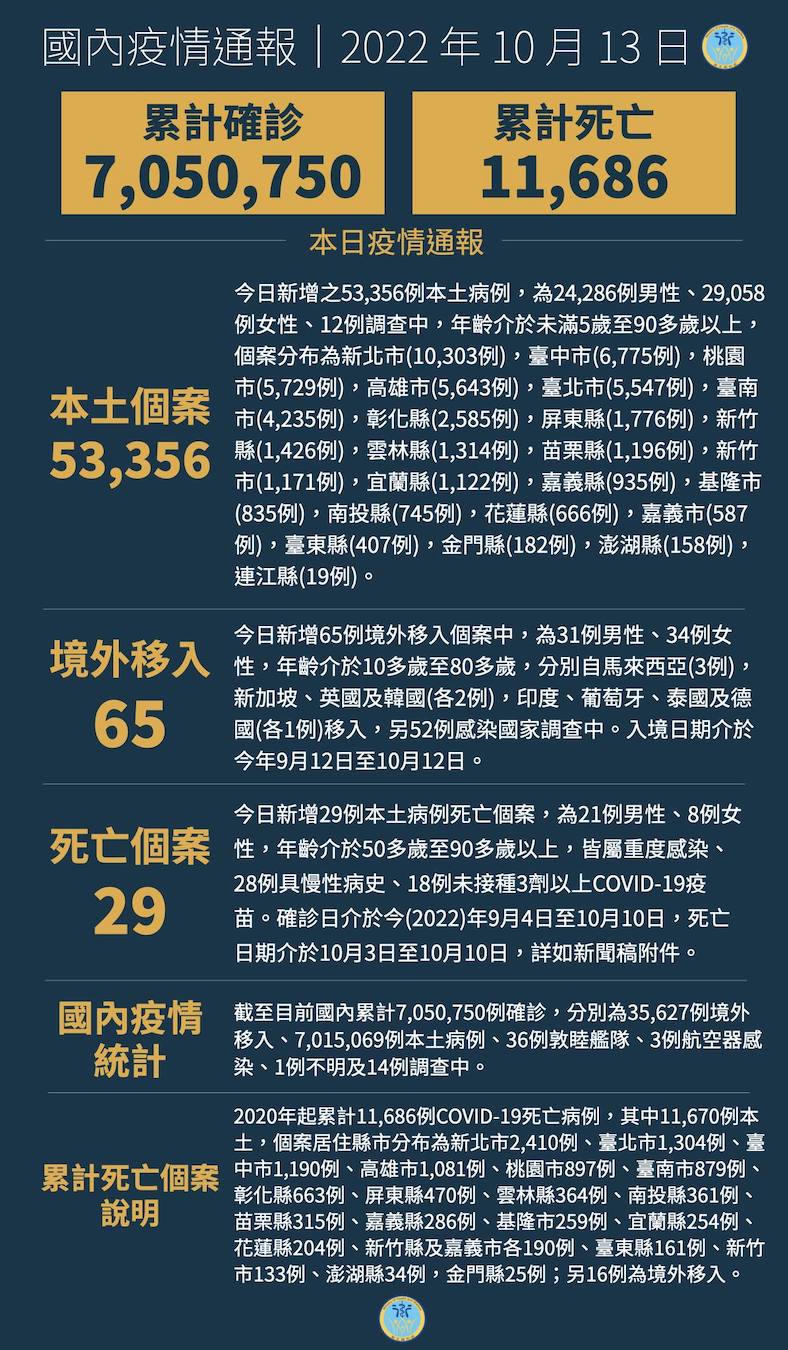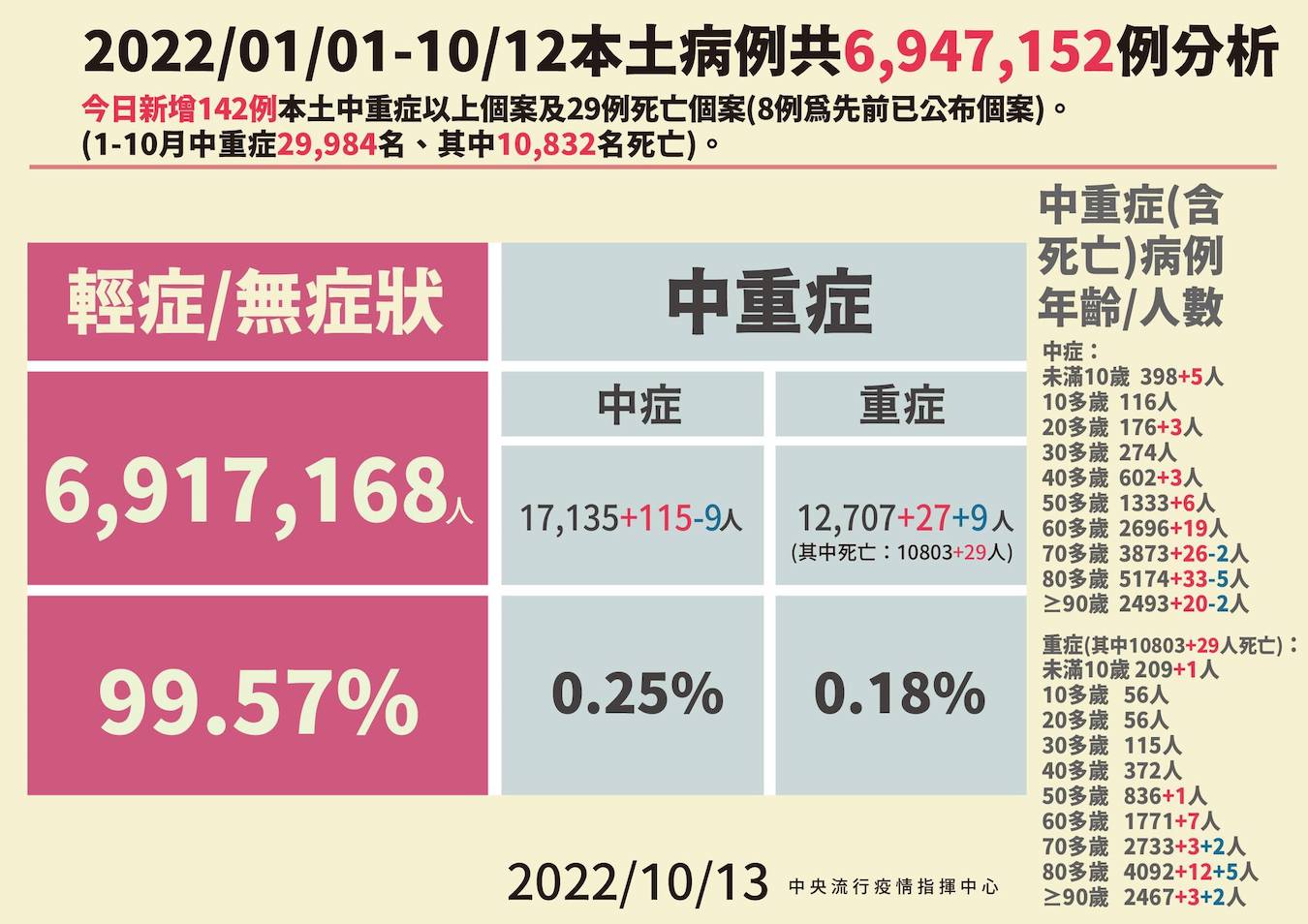by Brian Hioe
語言:
English
Photo Credit: Ray Swi-hymn/WikiCommons/CC BY-SA 2.0
TAIWAN IS SET for reopenings, with visa-free entry reinstated for the US, Europe, Canada, New Zealand, and Australia in mid-September. Other countries such as Japan, South Korea, and the Philippines were added in late September.
Likewise, quarantines are to be phased out today, October 13th. Instead of three-day quarantines, followed by a four-day self-health management period, there will be a shift towards seven days of self-health management. This will likely make it easier for international business travel and tourism to Taiwan to resume, with no requirement for mandated quarantine periods in quarantine hotels. The restriction on group tours will also be lifted, with the first tour groups arriving today.
The lifting of border restrictions is in light of the fact that the rate of infection of COVID cases that take place in Taiwan does not compare worse to other countries. Taiwan likely also has its eye on that other countries in the region–such as Japan–are reopening at the same time. In particular, Taiwan will likely see a wave of inbound tourism from Japan, as well as domestic tourists traveling to Japan. Given poor cross-strait relations at present, it is to be seen as to whether China will allow for group tours to Taiwan to resume, but this seems unlikely.
 Infographic on the number of cases reported today. Photo credit: Ministry of Health and Welfare/Facebook
Infographic on the number of cases reported today. Photo credit: Ministry of Health and Welfare/Facebook
It is unclear when the current mask mandate will be phased out. In public comments, Victor Wang, the director of the Central Epidemic Command Center (CECC) that coordinates Taiwan’s fight against COVID-19, has stated that he does not expect this to occur soon but floated the possible date of November last month. Minister of Health and Welfare Hsueh Jui-yuan, too, has suggested that the mask mandate will not be relaxed in the short-term.
It is to be expected that the CECC will take a gradualist approach to lifting COVID-19 measures such as the mask mandate, with elections set to take place in November. A significant uptick in the number of COVID-19 cases could be leveraged on for political attacks against the Tsai administration. The Taiwanese government, too, likely has its eye on actions by other countries in the region so as to justify its course of action, such as the lifting of the mask mandate in South Korea this month. It was previously speculated that the Taiwanese government might wait until after the election to lift the current border restrictions, but it is probable that the Tsai administration would be criticized as making judgments on COVID policy on the basis of politics, rather than effective measures against the coronavirus if it waited until then.
In the meantime, pan-Blue attacks on the Tsai administration’s COVID-19 policy continue. The KMT most recently held an occupation of the speaker’s podium of the legislature last week. This was to demonstrate the number of deaths that took place in Taiwan as a result of COVID-19, as well as the Tsai administration’s vaccine procurement policy. Specifically, the KMT alleges that Taiwan paid a higher price for COVID-19 vaccines than other countries did, as well as that the Tsai administration was only able to obtain vaccines for the public that were dangerous, such as AstraZeneca vaccines or domestically-developed and manufactured Medigen vaccines.
One notes that Want Want Group-owned news networks such as the China Times have sought to lean into the notion that the Tsai administration paid more for vaccines than other countries recently. This has included claiming that political corruption was responsible for higher prices for vaccines. Recently, political commentator Sisy Chen, who appears on Want Want Group-owned television network CtiTV, alleged that Taiwan had ten times more deaths from COVID-19 than Singapore and three times more deaths than Hong Kong. Chen did not specify what period she was referring to. On the other hand, in actuality, Hong Kong saw the world’s highest death rate from COVID-19 earlier this year, due to the refusal of the Hong Kong government to deviate from COVID-zero policies.
 Infographic on the number of light to severe cases reported today. Photo credit: Ministry of Health and Welfare/Facebook
Infographic on the number of light to severe cases reported today. Photo credit: Ministry of Health and Welfare/Facebook
Nevertheless, the pan-Blue camp has often sought to depict the Tsai administration as having had among the world’s worst responses to COVID-19, rather than a COVID response that kept Taiwan free of the expansive lockdowns that much of the world went through for well over a year and which was able to contain Taiwan’s first major COVID outbreak in a matter of months. Want Want Group-owned pan-Blue media outlets such as CtiTV and the China Times have been reported on as accepting funds from the Chinese government and allowing China’s Taiwan Affairs Office to have a direct say in the editorial direction and choice of what articles to publish.
Pan-blue attacks on the Tsai administration over its COVID policy are also of significance for the KMT given that the Tsai administration is running former Minister of Health and Welfare Chen Shih-chung as its Taipei mayoral candidate. Chen’s political viability is strongly linked to public perceptions of the Tsai administration’s record on COVID-19. Indeed, though Chen stepped down as Minister of Health and Welfare to run, the pan-Blue camp has sought to link the current performance of Victor Wang as CECC head to Chen by framing Wang as a protege of Chen’s.
But in attacking the Tsai administration’s record on COVID, apart from singling out Chen, the KMT likely hopes that it will be able to affect the performance of other DPP candidates as well.

